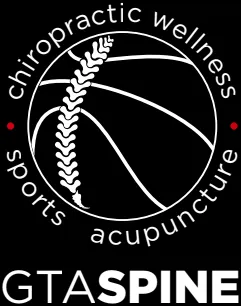What is Neck and Jaw Pain?
Neck and jaw pain is a common issue that involves discomfort or a problem with your neck, jaw, or both. These two areas are closely linked. The neck contains the cervical spine, muscles, and nerves, while the jaw is home to the temporomandibular joints (TMJ). The muscles and nerves that control your neck and jaw are connected, so a problem in one area can easily affect the other.
This connection is why pain in your neck might cause headaches, jaw stiffness, or even a clicking sound when you open your mouth. It can feel like pain, stiffness, or trouble moving, and it often comes from issues like muscle strain, poor posture, or an injury. Understanding this close relationship is the first step to finding a solution and getting back to living without pain.
Common Causes
- Poor posture: Bending your head forward for a long time, like when you’re using a computer or phone.
- Muscle strain: Clenching or grinding your teeth, or repeating the same jaw movements over and over.
- Jaw joint issues: Problems with the temporomandibular joint (TMJ), which can cause pain and clicking.
- Neck problems: Issues like disc wear and tear or nerve irritation in the neck.
- Injury: Whiplash from a car accident or a direct hit.
- Stress and anxiety: This can increase muscle tension in your neck and jaw.
- Referred pain: Pain that comes from other areas, such as dental problems, a sinus infection, or ear conditions.
- Sleep position: Sleeping in a position that puts stress on your neck.
Symptoms of Neck and Jaw Pain
- Pain in your neck, jaw, or both that comes and goes.
- Stiffness and trouble moving your neck or jaw.
- Jaw clicking, popping, or locking.
- Headaches, especially at the base of your skull or temples.
- Tight muscles or spasms in your neck, shoulders, or face.
- Pain that spreads to your shoulder, upper back, or ear.
- Numbness or tingling in your arms.
- Difficulty chewing, speaking, or opening your mouth wide.
When to See a Specialist
You should see a physiotherapist or another health professional if you have:
- Severe or worsening pain that isn’t getting better with rest or over-the-counter medication.
- Weakness, numbness, or tingling in your arms or hands that is getting worse.
- Your jaw locks and prevents you from eating or breathing normally.
- Symptoms after a car accident or injury.
- Headaches that keep coming back and are related to your neck or jaw movement.
- Pain that makes it hard to sleep, work, or do daily activities.
Getting help early can help you figure out what’s wrong and prevent the problem from becoming chronic.
How Can a Physiotherapist Help?
At GTA Spine, our physiotherapists assess your neck, jaw, and other related areas to find the root cause of your pain. We use proven methods to reduce pain, restore movement, and help you get back to your normal routine.
Our main treatment approaches include:
- Thorough assessment: We check your posture, neck and jaw joints, and muscles.
- Manual therapy: We use gentle techniques to improve movement and reduce pain.
- Exercises: We give you specific exercises to strengthen your neck and jaw muscles.
- Posture and habit coaching: We help you make practical changes to your desk setup, sleeping position, and daily habits.
- Pain education: We explain why you are in pain so you can feel more confident and in control of your recovery.
- Specific jaw strategies: We teach you jaw exercises and, if needed, work with your dentist on oral appliances.
- Dry needling or acupuncture: We use these techniques when appropriate to help with muscle pain.
- Gradual return to activity: We create a step-by-step plan to help you get back to your activities and sports.
